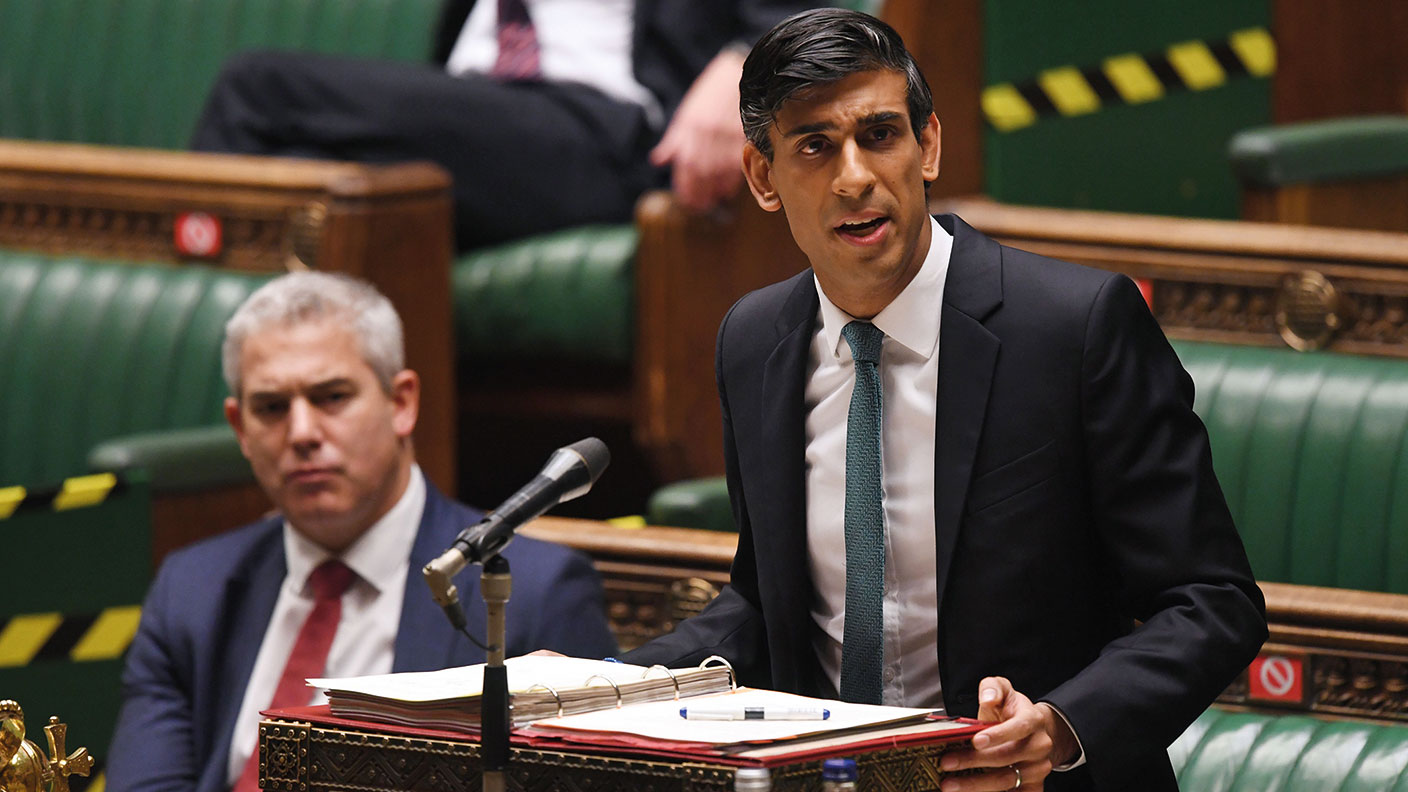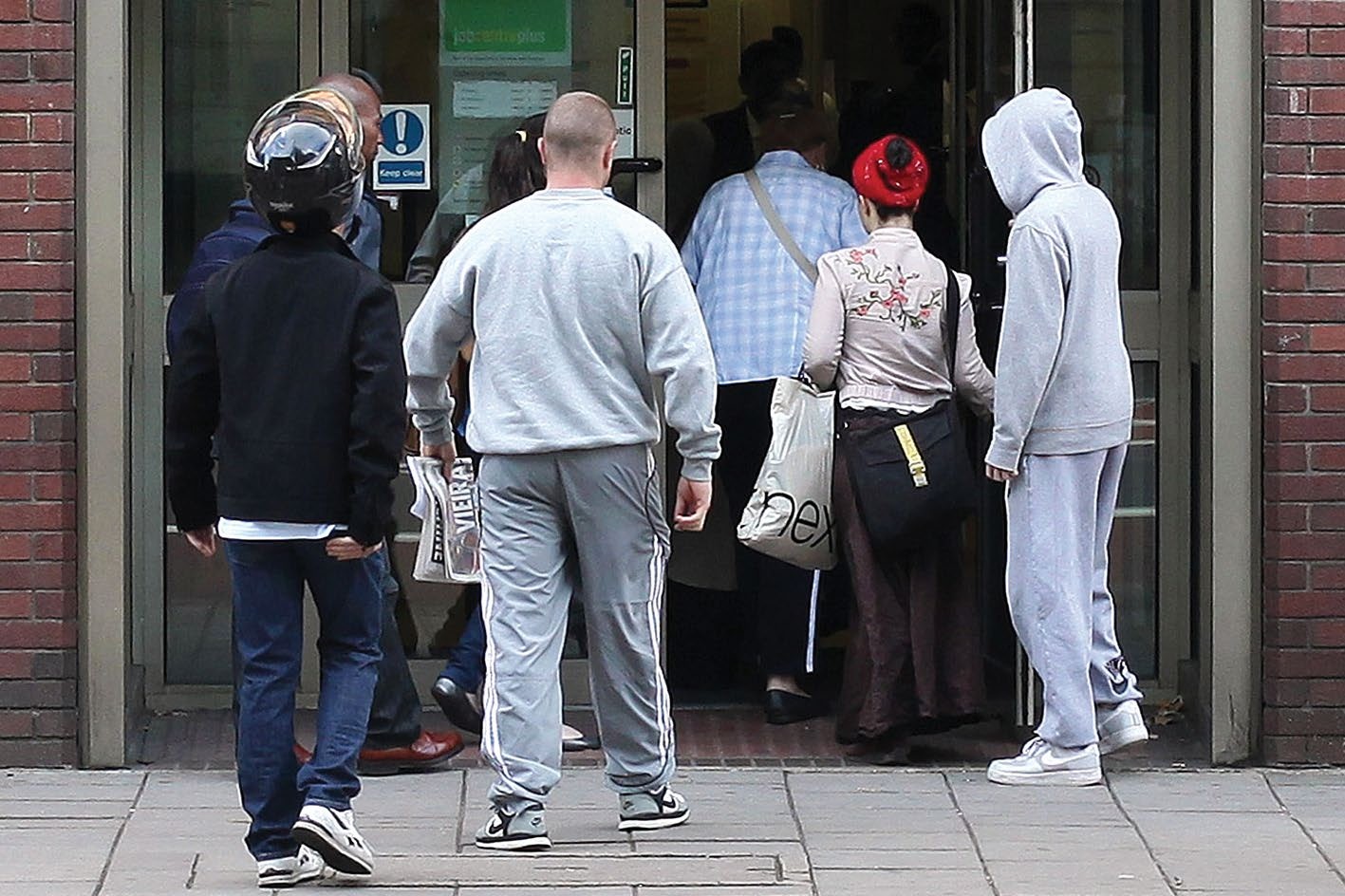Should Britain really be cutting foreign aid now?
Faced with a black hole in the public finances, chancellor Rishi Sunak has targeted the foreign aid budget. Is he right to do so? And will it save us much money?

Get the latest financial news, insights and expert analysis from our award-winning MoneyWeek team, to help you understand what really matters when it comes to your finances.
You are now subscribed
Your newsletter sign-up was successful
Want to add more newsletters?
What’s happened?
Last week, chancellor Rishi Sunak set out details of the fiscal hole facing the UK as a result of the pandemic and associated slump, and announced a cut in the foreign aid budget from 0.7% of gross national income to 0.5%. The exact size of the cut will depend on the size of the slump, but it adds up to a third – from about £15bn a year to £10bn. The move breaks a promise most recently reaffirmed in the Conservatives’ 2019 election manifesto to keep the target. All five living ex-prime ministers (two Labour, three Tory) criticised the move. It prompted Baroness Liz Sugg to resign as a foreign office minister, while the Archbishop of Canterbury branded the cut “shameful and wrong”. Andrew Mitchell, a former international development secretary (whose old department has been swallowed by the Foreign Office) warned it would mean four million people losing access to clean water and “100,000 preventable deaths, mainly among children”. He plans to lead a Tory rebellion when MPs vote in January; some expect the numbers to be close.
Why the anger?
The 0.7% target is a totemic figure in the international development field and many politicians are proud that Britain is one of the few countries to actually hit it. The United Nations first set a target for donor countries to contribute 0.7% of their income in 1970. The UK signed up to the target in 1974, finally hitting it for the first time in 2013 under the coalition government. Since 2015 the target has been enshrined in law, which in practice means that the international development secretary (or now the foreign secretary) has to explain themselves to Parliament if we miss it.
What do we spend it all on?
About two thirds of the £15.2bn spend in 2019 was “bilateral” aid, meaning direct assistance to specific countries, regions or programmes (this accounted for £10.3bn, or 67.5% of UK aid). The other third (£4.9bn, 32.5%) was spent via “core funding to multilaterals”, meaning bodies such as UN development agencies. Africa accounted for 50.6% of region-specific bilateral aid, while the three biggest recipient countries were Pakistan (£305m), Ethiopia (£300m) and Afghanistan (£292m). UK aid to Yemen was £260m, up £94m on 2018, the biggest year-on-year rise. Other than Ethiopia, the next biggest African recipients were Nigeria, South Sudan and the DR Congo. Outside Africa, the next biggest recipients (after Pakistan and Afghanistan) were Bangladesh, Syria, Lebanon and Jordan.
Try 6 free issues of MoneyWeek today
Get unparalleled financial insight, analysis and expert opinion you can profit from.

Sign up to Money Morning
Don't miss the latest investment and personal finances news, market analysis, plus money-saving tips with our free twice-daily newsletter
Don't miss the latest investment and personal finances news, market analysis, plus money-saving tips with our free twice-daily newsletter
How does the UK compare?
We’re unusually generous. Last year, the UK ranked fifth in the international table for government spending on foreign aid. It was one of only five countries to hit the UN target of 0.7% – and the only large economy to do so. The four small rich countries to beat the target were Luxembourg (top with 1.05%), Norway, Denmark and Sweden. Germany managed 0.6%, France 0.44%, the US just 0.16%. China reported a figure of 0.36%. It’s true such figures can be misleading, since state spending is not the only form of aid. Foreign aid donated by private US foundations totalled $150bn last year, dwarfing the government’s $34bn. The Bill & Melinda Gates Foundation alone made direct grants of $5.1bn in 2019, more than most countries. Even so, most nations – even rich European countries and the likes of Japan, New Zealand and Canada – fail to hit the 0.7% target by a long way (they are typically in the range of 0.2% to 0.4%). To put the UK’s aid cut in context, if we had contributed just 0.5% of gross national income (GNI) last year, instead of 0.7%, we would have fallen just two places in the table, from fifth to seventh. Even with the cut, we’ll still be the second-most generous G7 nation behind Germany.
So let’s not be too hard on ourselves?
Voters seem to agree that charity begins at home, said Daniel Johnson in The Article – YouGov polling shows about two-thirds support for Sunak’s aid cut. Britons presumably find it odd that the establishment’s wrath has been focused on this issue rather than, say, the predicted rise in unemployment to 2.6 million. The “cynical” explanation for the explosion of anger from former prime ministers and the like is that “foreign aid enables rich people to feel good about their wealth. It is the collective equivalent of individual charity and it salves our national conscience”. In fact, the UK remains a global leader in aid and we should “hold our heads high”. Moreover, this excessive focus on “inputs” rather than “outputs” is fundamentally wrong-headed, said Madeline Grant inThe Daily Telegraph. Sticking to a rigid target of this kind helps fuel the lack of scrutiny, waste and corruption for which foreign aid is notorious.
What’s the counter-argument?
The UK has become a development superpower in recent decades and by first dismantling the Department for International Development, and now slashing the aid budget, we’re trashing our leadership role at the very time we’re supposed to be promoting standalone “Global Britain”. Former foreign secretaries Jeremy Hunt and Malcolm Rifkind are among those Tories who view the 0.7% aid budget as a core pillar of the UK’s global soft power. “To cut our aid budget by a third in a year when millions more will fall into extreme poverty will make not just them poorer, but us poorer in the eyes of the world,” says Hunt. What makes it so odd is that it’s such bad politics, says Larry Elliott in The Guardian. The aid budget was falling anyway in line with GDP, so the government’s actual saving is only around £3.4bn. Given projected borrowing of £400bn next year, that’s “chicken feed” – a minimal gain at the cost of a likely Tory rebellion. It’s also a self-inflicted diplomatic wound in a year when we’re hosting the G7 and COP26 climate talks. “If ever there was an example of spoiling the ship for a ha’p’orth of tar, this is it.”
Get the latest financial news, insights and expert analysis from our award-winning MoneyWeek team, to help you understand what really matters when it comes to your finances.
-
 What do rising oil prices mean for you?
What do rising oil prices mean for you?As conflict in the Middle East sparks an increase in the price of oil, will you see petrol and energy bills go up?
-
 Rachel Reeves's Spring Statement – live analysis and commentary
Rachel Reeves's Spring Statement – live analysis and commentaryChancellor Rachel Reeves will deliver her Spring Statement on 3 March. What can we expect in the speech?
-
 UK small-cap stocks ‘are ready to run’
UK small-cap stocks ‘are ready to run’Opinion UK small-cap stocks could be set for a multi-year bull market, with recent strong performance outstripping the large-cap indices
-
 The scourge of youth unemployment in Britain
The scourge of youth unemployment in BritainYouth unemployment in Britain is the worst it’s been for more than a decade. Something dramatic seems to have changed in the labour markets. What is it?
-
 In defence of GDP, the much-maligned measure of growth
In defence of GDP, the much-maligned measure of growthGDP doesn’t measure what we should care about, say critics. Is that true?
-
 Reach for the stars to boost Britain's space industry
Reach for the stars to boost Britain's space industryopinion We can’t afford to neglect Britain's space industry. Unfortunately, the government is taking completely the wrong approach, says Matthew Lynn
-
 "Botched" Brexit: should Britain rejoin the EU?
"Botched" Brexit: should Britain rejoin the EU?Brexit did not go perfectly nor disastrously. It’s not worth continuing the fight over the issue, says Julian Jessop
-
 'AI is the real deal – it will change our world in more ways than we can imagine'
'AI is the real deal – it will change our world in more ways than we can imagine'Interview Rob Arnott of Research Affiliates talks to Andrew Van Sickle about the AI bubble, the impact of tariffs on inflation and the outlook for gold and China
-
 Tony Blair's terrible legacy sees Britain still suffering
Tony Blair's terrible legacy sees Britain still sufferingOpinion Max King highlights ten ways in which Tony Blair's government sowed the seeds of Britain’s subsequent poor performance and many of its current problems
-
 How a dovish Federal Reserve could affect you
How a dovish Federal Reserve could affect youTrump’s pick for the US Federal Reserve is not so much of a yes-man as his rival, but interest rates will still come down quickly, says Cris Sholto Heaton